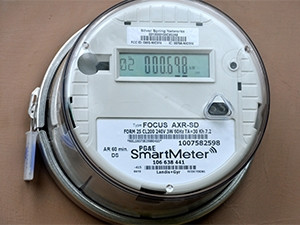
Power utility Eskom has improved revenue collected by R61 million since it started rolling out smart meters.
Smart meter deployment began in 2013 in an attempt by Eskom to resolve issues around inaccurate billing, which were caused by post-implementation problems. Although the programme faced some teething problems, it is now moving ahead.
The move to prepaid meters is part of Eskom's plan to improve cash flow and address the power utility's debt collection challenges.
Since inception, the conversion of meters to prepaid has improved revenue collected by R61 million. Furthermore, conversions have resulted in an increase in revenue billed from R200 000 per month in July 2014 to R4 million in March 2016, as demand is now being metered, as well as a drop in energy demand, due to customers now having to pay for their consumption.
Eskom has made a strategic decision to convert all of its conventionally billed customers to prepaid meters, the parastatal says. Smart meters rely heavily on a reliable communication network, so where such a network does not exist, alternatives will be considered, it adds.
In Gauteng, the power utility has embarked on the Eskom Operational Efficiency Service Level Improvement Programme, focusing mainly on Soweto, Kagiso and surrounding areas as well as Midrand and Sandton.
The programme comprises several initiatives. Firstly, decreasing energy losses by removing illegal connections, conducting meter audits, rectifying faulty or tampered meters and curbing ghost vending by introducing new supply group codes.
Secondly, Eskom is installing split smart prepaid meters within protective enclosures to prevent tampering, as well as bulk meters on supplies to hostels and entering into supply agreements with the owners.
"We will also improve payment levels by stepping up disconnections for customers not honouring their current accounts. And lastly, we will increase debt collection from businesses by stepping up disconnections, entering into payment arrangements for arrears and installing split prepaid meters," says Eskom in a statement.
It adds that the rollout of smart prepaid meters is progressing well, with 17 527 conventional meters in Soweto and 3 026 in Kagiso being converted to prepaid at 31 March. A total of 5 992 smart meters were installed in Sandton and Midrand, while the conversion to prepaid will resume this month.
The resumption will kick off once the parastatal has upgraded its online vending system. The system is used by consumers to buy electricity tokens.
Customers can buy their electricity tokens through a range of vending points, including banks, retail shops, Eskom buildings, spazas, kiosks and ATMs. The online vending system utilises electronic systems to facilitate 24/7 purchase via EFT, the Internet and by means of smartphones.
Share